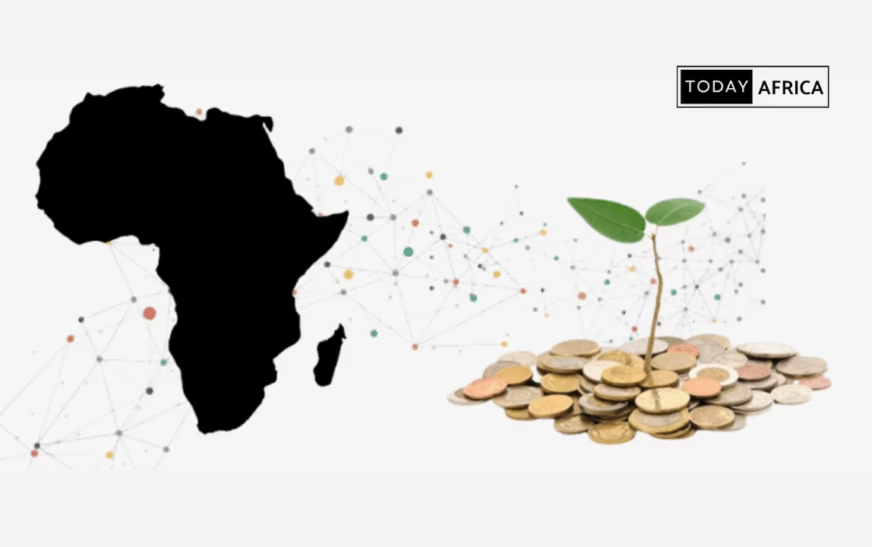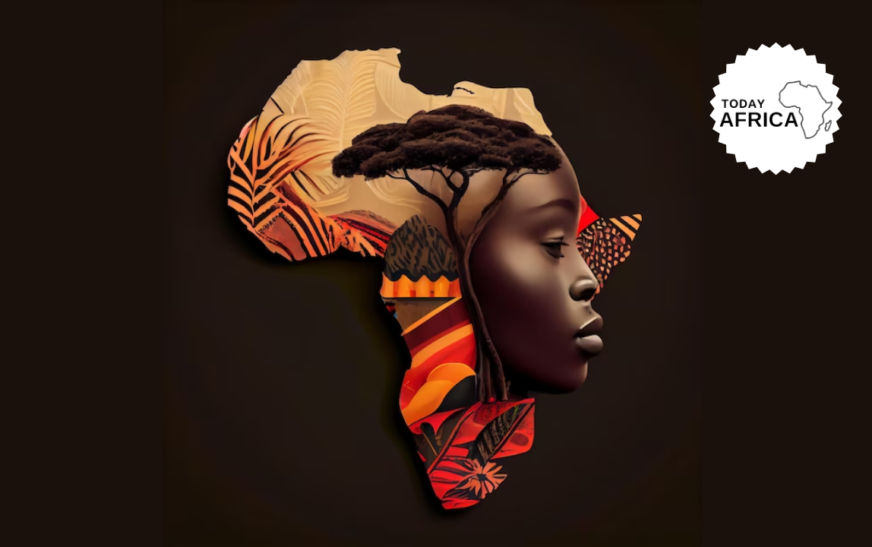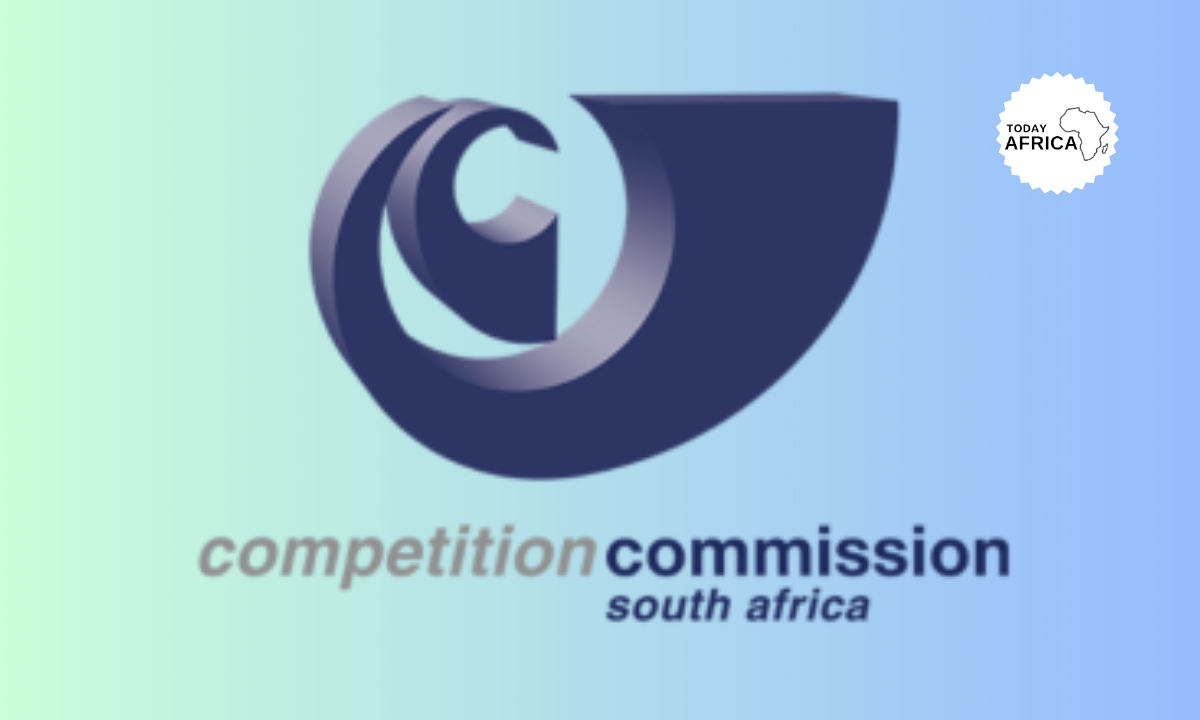If you’re a founder looking for grants for African startups, you’re in luck! Several organizations are actively providing grants to support businesses across various industries.
These grants offer more than just capital—they open doors to mentorship, global networks, and long-term scalability. Whether you’re into agribusiness, fintech, green technology, or community development, there’s a grant opportunity for you.
Here is a curated list of the top 15 grants for African startups is designed to help you find the right support to bring your vision to life.
Government & International Grant for African Startups
1. U.S. African Development Foundation (USADF)
The U.S. African Development Foundation (USADF) runs the Accelerate Africa grant program. It offers up to $250,000 in grant funding per award to early-stage African businesses led by youth and women.
To qualify, ventures must be 100% African-owned and focus on development sectors such as renewable energy, agriculture, or healthcare.
USADF emphasizes community impact; past rounds supported farmers’ co-ops, energy firms, and health-tech startups across dozens of African countries. (USADF’s official site provides application details and country eligibility.)
2. Africa Agri-food Development Programme (Ireland-Africa)
For agrifood startups, Ireland’s Africa Agri-Food Development Programme (AADP) offers matched grants of up to € 250,000. This EU-backed initiative funds collaborative projects between Irish agribusinesses and African partners.
AADP has two streams: Feasibility Studies (grants up to €100K) and Full Projects (grants up to €250K, matching co-investment).
Eligible projects must involve at least one Irish company working with an African agri-business on value-chain innovation – for instance, improving food processing or market access in countries like Nigeria, Kenya, Ethiopia, and others.
This program is highly competitive but uniquely large for African-Irish partnerships.
See Also: 10 International Grants for African Countries This Year
3. African Development Bank
The African Development Bank (AfDB) frequently hosts youth agribusiness contests. Its AgriPitch competition, featured in the Bank’s Youth Entrepreneurship Trust Fund, awards promising young agripreneurs.
In 2020, AfDB’s AgriPitch awarded a total of $120,000 to winners across categories (mature startups, early-stage, women-led). While AgriPitch itself varies year to year, it demonstrates AfDB’s support for agritech.
Check AfDB’s Youth Entrepreneurship or Jobs for Youth in Africa initiatives for the latest call for proposals, which often include grant competitions and pitch events for agriculture, energy, and other sectors.
Philanthropic & Nonprofit Grants for African Startups
4. Tony Elumelu Foundation (TEF) Entrepreneurship Programme
The Tony Elumelu Foundation runs Africa’s largest philanthropy for entrepreneurs. Each year, it selects thousands of startups from every African country and gives $5,000 in non-refundable seed capital to each entrant.
TEF picks around 3,000 – 5,000 entrepreneurs yearly from all 54 countries. Winners also receive 12 weeks of online business training, mentorship, and network access.
TEF is sector-agnostic: it funds startups in agriculture, tech, health, energy, and beyond. (Prepare to apply next year via the TEFConnect platform; selection criteria include viability, scalability, and management capacity.)
5. Anzisha Prize (Youth Entrepreneurs)
The Anzisha Prize, backed by the African Leadership Academy and Mastercard Foundation, targets young entrepreneurs under 22. Finalists compete for cash awards, with a share of over $50,000 in prizes.
In recent years, about 20–30 winners split roughly $100,000–$140,000 annually (e.g. top prizes are around $25–50K). Anzisha focuses on “change-making” startups (many in edtech, agri, healthcare, etc.).
Winners get funding plus a year of mentorship. All African nationalities can apply, but businesses must be fully or majority African-owned. (The 2025 call is open now; details on anzisha.org.)
6. Africa’s Business Heroes (Jack Ma Foundation)
Africa’s Business Heroes (ABH) is a flagship prize by Jack Ma. Each year, ten finalists are chosen for an online pitch competition. Those finalists share a $1.5 million grant pool, with the top entrepreneur taking $300,000.
Runners-up receive between $100K–$250K each. Importantly, ABH is truly pan-African: it is open to entrepreneurs from all 54 African countries and any business sector.
Finalists also get high-profile media exposure, mentoring, and an invitation to Alibaba events. (The next ABH cycle opens in late 2025; past themes have included digital innovation, education, and social impact.)
7. Orange Social Venture Prize (Africa & Middle East)
Telecom giant Orange sponsors the annual Social Venture Prize. It awards technology-driven social businesses across Africa and the Middle East.
Prizes include €25,000, €15,000, and €10,000 for the top three winners (International Grand Prix) and a special €20,000 Women’s Prize.
The contest is open to startups from participating Orange countries (currently 18 markets in sub-Saharan Africa and MENA). Sectors range from e-health and fintech to sustainable energy and agri-tech.
Winners also receive a year of incubation and networking support in Orange’s facilities. (The 2025 edition deadline is usually mid-year.)
Read Also: 20 Most Funded Startups in Africa Still Active This Year
Equity-free Accelerators & Support Programs

8. Orange Corners Innovation Fund
Another Dutch-African initiative, Orange Corners, provides entrepreneurship hubs in countries like Nigeria, Senegal, South Africa, and Kenya. Through its Innovation Fund, Orange Corners offers hybrid financing: up to €50,000 per startup (part grant, part loan).
Grants cover roughly half the investment, with the rest as a low-interest loan. The program includes incubation, training, and mentoring for youth-led tech and creative startups in agriculture, ICT, renewable energy, and related fields.
Orange Corners is notable for its broad reach: it supports female and male entrepreneurs in multiple regions (West, East, Southern Africa). (Applications are by country cohort; check the Orange Corners site for the next call.)
9. MTN Cloud Accelerator (Africa-wide)
Mobile operator MTN launched a 12-week Cloud Accelerator in 2023 that continues in 2025. It is pan-African: open to startups across MTN’s 17-country footprint (Ghana, Nigeria, Uganda, etc.) and beyond, as long as they tackle African problems in fintech, health, agtech, etc.
Crucially, MTN takes no equity. Instead, each cohort startup receives ₦5 million (≈$12,000) in grant funding, part of a ₦100 million total fund. (Grants are meant for product development and pilot integration.)
Startups also get MTN platform credits (Cloud, MoMo payments API, etc.), mentorship, and customer trials. Since MTN has rolled out new cohorts recently, watch mtnaccelerate.com or local MTN startup sites for application dates.
10. Leap Africa SIPA (Social Innovators Programme & Awards)
Leap Africa, an NGO, runs the Social Innovators Programme & Awards (SIPA) in Nigeria. This initiative supports community-focused startups and social enterprises. SIPA finalists receive grant awards (typically between $5,000 and $15,000) and intensive mentorship.
For example, in past editions, winners tackled waste management, education, and healthcare challenges. Though SIPA is Nigeria-based, any African social entrepreneur whose work benefits Nigerian or African communities can often apply. (Leap Africa also provides business training throughout the year.)
11. ProVeg Incubator (Alternative Protein)
The ProVeg Incubator is a global program for food and agriculture startups, with an Africa stream. It targets plant-based and cultivated (lab-grown) protein ventures, among other sustainable food solutions.
Participating African startups can receive €5,000 to €50,000 in funding, plus 6–12 months of incubation and technical support. Last year, ProVeg attracted applications from across Africa (Kenya, South Africa, etc.).
This year’s call (announced early summer) will again focus on startups reducing meat consumption or waste. While sector-specific, ProVeg is equity-free: it is funded by donors (e.g., Atlantic Food Labs) and takes no ownership.
See Also: These 3 Entrepreneurs are Revolutionizing Agriculture in Tanzania
Emerging Grants for African Startups
Grant funding is evolving, with more emphasis on climate tech, AI-driven solutions, and sustainable businesses. Investors are particularly keen on supporting women-led businesses, digital inclusion, and renewable energy projects.
11. Climate tech and sustainable solutions
With climate change becoming an urgent global concern, grant providers are increasingly prioritizing startups that focus on renewable energy, sustainable agriculture, and carbon reduction technologies.
Organizations such as the United Nations Development Programme (UNDP) and the African Development Bank (AfDB) are allocating more funds toward businesses tackling environmental challenges.
Startups innovating in solar energy, waste recycling, and green construction stand a higher chance of securing grant funding. Governments and international agencies are also rolling out climate-focused financial programs, further fueling growth in this sector.
12. AI-driven and digital transformation solutions
Artificial intelligence (AI) is revolutionizing industries, and grant organizations are keen on backing startups harnessing AI for positive impact. Funding is expanding for businesses using AI in sectors such as healthcare, fintech, agriculture, and logistics.
For instance, AI-driven diagnostic tools that improve healthcare access in remote areas or fintech solutions that drive financial inclusion are receiving increased grant support.
Additionally, startups developing AI applications to enhance supply chain efficiency or optimize farming practices are becoming strong contenders for funding.

13. Women-led startups and gender inclusion
Diversity and inclusion have become core priorities for grant providers. Women-led businesses and female entrepreneurs are now gaining significant support through specialized grant programs such as the Women Entrepreneurs Finance Initiative (We-Fi) and the AWIEF Growth Accelerator.
These grants aim to bridge the funding gap for women in business by providing financial backing, mentorship, and networking opportunities.
Sectors like education, healthcare, and social enterprises led by women are particularly attractive to grantors.
14. Digital inclusion and connectivity
Africa’s digital revolution is in full swing, and funding organizations are prioritizing startups that drive internet accessibility, digital literacy, and financial inclusion. Grants are being directed toward businesses creating affordable internet solutions, mobile banking platforms, and e-learning tools.
The increasing adoption of blockchain and decentralized finance (DeFi) in Africa is also drawing grant attention. Startups enabling secure, low-cost transactions for underserved communities are receiving more funding from international organizations and fintech-focused programs.
15. Cross-border and regional collaboration
A growing trend in grant funding is the emphasis on cross-border partnerships and regional economic integration. Startups engaging in pan-African trade, regional supply chains, and multinational projects are more likely to secure grants.
Programs like the African Continental Free Trade Area (AfCFTA) initiatives and multinational accelerator programs are designed to fund businesses that foster economic cooperation across African nations.
Grant providers recognize that regional collaboration leads to scalability, market expansion, and sustainable development.
Other Opportunities to Watch
Beyond the above, several other grants and fellowships can fuel African startups in 2025:
- African women entrepreneurship challenges: Programs like the WE4A (Women Entrepreneurship for Africa) initiative offer prize money or startup grants for women-led ventures. Check the Tony Elumelu Foundation’s WE4A program for announcements.
- UNICEF/UNDP Innovation Grants: International agencies sometimes run continent-wide calls (e.g. WFP’s Humanitarian Innovation Accelerator providing ~$50K, or UNDP’s climate tech funds). Keep an eye on UN and SDG-related innovation challenges.
- Local pitch competitions: Many countries host national startup awards. For example, the Nigerian Founder Institute, Kenya Climate Innovation Center, and others have contests with cash prizes. These vary year to year but can be valuable supplements to the above.
Each of these represents additional grant-based support (often equity-free) for African entrepreneurs. Because programs open on different cycles, it’s wise to follow startup networks, newsletters (e.g., VC4A, Menterprise, Partech News), and ministry announcements in your country.
How to Apply
- Find the right grant: Research each grant’s eligibility criteria and sector focus.
- Prepare a strong business proposal: Highlight how your business creates impact and solves a problem.
- Build a compelling pitch: Some grants require video submissions or live pitches, so be ready to showcase your vision.
- Avoid common mistakes: Ensure your documents are complete and meet submission deadlines.
Conclusion
These grants for African startups offer incredible opportunities for you, looking to secure funding for your startup. Take your time to research each program, ensure your business meets the eligibility criteria, and submit a compelling application.
Mark application deadlines on your calendar, and apply widely. Each grant or award above is a chance to gain free capital, mentoring, and networks without giving up equity. These funds are designed to empower African innovators – now is the time to seize them.
Key takeaways:
- Seek the right fit: Some grants are broad (e.g. TEF’s $5K seed or ABH’s pan-African prize, while others target sectors (e.g., agribusiness, health, women entrepreneurs). Identify those aligned with your industry and stage.
- Check eligibility early: Most top programs welcome applicants from all 54 African countries, but may require local partnerships or specific ownership. For example, USADF insists on 100% African ownership, whereas ABH is open to any African entrepreneur.
- Prepare quality applications: Competition is fierce (TEF saw 200k+ applications for 3k slots). Build a solid business plan and pitch deck, and emphasize impact and scalability. Engage with local hubs or mentors – many programs value that community endorsement.
FAQs
What is a startup grant, and do I have to repay it?
A grant is funding provided without equity or repayment. Unlike loans or equity investors, grants are free money for your business. Grants do not dilute your ownership and you never pay them back.
Who can apply for these African startup grants?
Eligibility varies. Many programs are pan-African. For instance, ABH explicitly welcomes entrepreneurs from “all 54 African countries”. The TEF program also accepts applications continent-wide. However, some have ownership rules: USADF requires ventures to be 100% African-owned.
Check each grant’s criteria – common requirements include being an early-stage business with a functional product or service, and (often) majority African leadership.
Which industries or sectors are eligible?
It depends on the program. Some grants are sector-agnostic – for example, ABH and TEF fund entrepreneurs in any industry. Others target themes: AADP focuses on agrifood partnerships, and the ProVeg incubator is for plant-based foods and agriculture.
There are also specific calls for climate tech, fintech, health tech, etc. Read the program details – many competitions invite innovations in digital, sustainability, and social impact sectors.
How competitive are these grant programs?
Very. These opportunities attract thousands of applicants. For example, every year, TEF gets over 200,000 applicants for 3,000 prizes. ABH and Anzisha each saw tens of thousands of applicants from across Africa.
Success often requires a standout pitch and evidence of traction or impact. To improve chances, follow guidelines carefully, tailor your application, and leverage any mentorship or training offered by the program.
Leave a comment and follow us on social media for more tips:
- Facebook: Today Africa
- Instagram: Today Africa
- Twitter: Today Africa
- LinkedIn: Today Africa
- YouTube: Today Africa Studio

















2 Comments
Your writing has a way of resonating with me on a deep level. I appreciate the honesty and authenticity you bring to every post. Thank you for sharing your journey with us.
Thank you for finding value in the article.
Comments are closed.